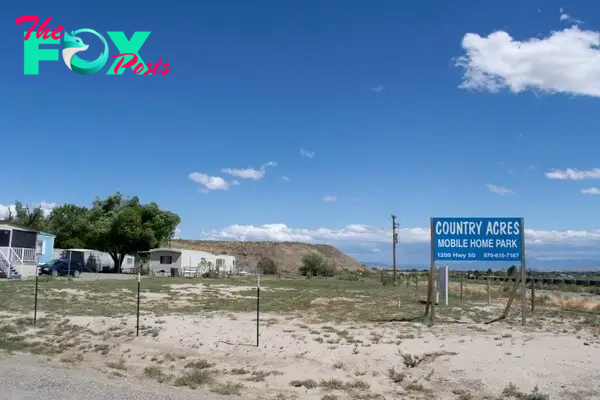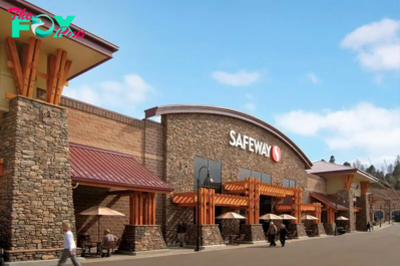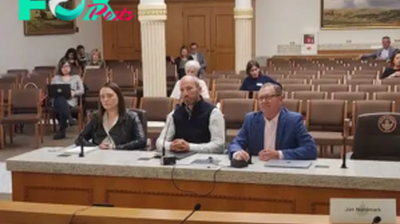Technology
What’s Working: New broadband laws to help Colorado streamline distribution of $800+ million

There’s nearly a billion dollars en route to Colorado to fix internet service issues like slow speeds, affordability or the complete lack of service, especially in rural areas. But to streamline the process and speed up the distribution of funds, a few loose ends were just tied.
The passage of House Bill 1336 and House Bill 1234 seemed more like an administrative task to move more duties over to the Colorado Broadband Office, which was already tasked to handle those chores two years ago by Gov. Jared Polis. But they’re still pretty significant, said Brandy Reitter, the broadband office’s executive director.
“In the old model, we had different steps before the awards could go out. It would take nine to 12 months to get the dollars out the door,” Reitter said. “This makes some really significant improvements in how fast we can deliver broadband to the state.”
Through other departments, the state has for years offered grants to internet providers to help expand service from the big internet pipes crossing the nation to towns and municipalities (the middle mile) and to consumers (the last mile). The Colorado Broadband Office needed those changes codified to become the central source for federal broadband awards.
The imPetus to streamline awards was the anticipation of billions of dollars from the infrastructure bill Congress passed in 2021. Last year, Colorado learned it will receive $826.5 million as part of the federal Broadband Equity, Access and Deployment Program, dubbed BEAD. So the state broadband office has been in the process of setting up how that money will be distributed to internet providers, middle-mile builders and municipalities.
One of those sources is the High Cost Support Mechanism, the 2.6% telecom fee that telephone customers pay to offset the cost of voice or internet service for low-income residents. The fees also fund internet service expansion in rural areas. The state’s Broadband Deployment Board reviews applicants twice a year and since 2016, has awarded more than $100 million to internet providers to expand broadband to 40,000 rural households.
As already planned, the 11-member board winds down in September, and the transfer of authority to the state broadband office is complete with the new laws.

“It allows for more funding for other types of projects, such as middle mile and all the other projects or elements of broadband connectivity that typically go under funded or unfunded,” Reitter said. “The governor’s executive order directs CBO to be the central source to meet the state’s universal coverage goal of 99%. This makes CBO the agency for that.”
Colorado households are currently 91.9% covered with broadband service, according to the state broadband office, or CBO.
Local internet providers hope the transition to the state broadband office will continue to seek input from the private sector, said Brian Shepherd, vice president of grant engagement for Visionary Broadband and a former executive at CBO. One of Visionary’s employees serves on the broadband board.
“As with major change, there’s pros and cons,” Shepherd said. “The new process will streamline decision making, but some transparency and critical industry input will be lost. The CBO has promised to include industry in the new process and we’re hopeful they will follow through on that commitment.”
CBO is setting up a new Grant Review Working Group to develop grant guidelines. The office will ask for folks to join the board and previous broadband board members can apply, Reitter said. Guidelines for applying for BEAD-related grants should be out later this summer.
➔ Related: Of $113.5 million awarded by CBO earlier this year as part of the federal broadband grant called the Capital Project Funds, there were challenges and remediations to some of the amounts that left $859,250 remaining. The program allowed existing awardees to apply for available funds. CBO announced Friday that Maverix Broadband and the Southern Colorado Economic Development District received the remainder. >> Award details (see Challenges)
More internet options for apartment, mobile home park residents
Apartment and mobile home residents could benefit from House Bill 1334, which prohibits property owners from refusing to give internet providers access to the property to install service. This happens when a building or property owner already has an existing internet provider and lucrative agreement. But it can also be based on the cost to owners.
The Apartment Association of Metro Denver testified against the bill, complaining that it could lead to anyone walking onto the property and adding “limitless wireless, limitless boxes, limitless poles, limitless towers … without any restrictions,” Drew Hamrick, the group’s general counsel, testified.

Mark Kurtz, with internet provider Elevate Fiber in Montrose, testified in support of the bill and spoke of how it took months of costly meetings between attorneys at the company and a local mobile home park owner for Elevate to provide service to a customer.
That’s been a challenge for ensuring clean drinking water, too, said Reitter, pointing to a bill that passed last year to address water quality testing in mobile home parks. Reitter calls it “artificial barriers” to broadband access if the building’s only option is slower than what the state considers adequate internet speeds of at least 100 mbps in download speeds and 20 mbps up.
“We think that the law expands access to affordable, reliable broadband internet service for some of the most vulnerable communities in Colorado and it’ll help us achieve our 99% goal,” she said.
➔ ONE MORE: Tax refund continues for broadband equipment. House Bill 1036 repealed several “infrequently used tax expenditures,” but it kept the sales and use tax refund for rural broadband equipment through Jan. 1, 2027. Reitter said few refunds are requested but as the state ramps up to award companies building rural infrastructure, “We didn’t want to lose this as a tool,” she said. In 2022, eight out of the nine providers that had installed broadband in rural areas said they didn’t even know about the exemptions. CBO began promoting the refund more last year and has seen increased interest, she said.
-

 Technology5h ago
Technology5h agoTeslas are deadliest road vehicles despite safety features: study | The Express Tribune
-

 Technology18h ago
Technology18h agoThere Is a Solution to AI’s Existential Risk Problem
-

 Technology21h ago
Technology21h agoUS pushes to break up Google, calls for Chrome sell-off in major antitrust move | The Express Tribune
-

 Technology1d ago
Technology1d agoPublic health surveillance, from social media to sewage, spots disease outbreaks early to stop them fast
-

 Technology1d ago
Technology1d agoTikTok, PTA host youth safety summit in Pakistan | The Express Tribune
-

 Technology1d ago
Technology1d agoWhy a Technocracy Fails Young People
-

 Technology1d ago
Technology1d agoTransplanting insulin-making cells to treat Type 1 diabetes is challenging − but stem cells offer a potential improvement
-

 Technology1d ago
Technology1d agoJapan's $26 billion deep sea discovery sparks serious environmental concerns | The Express Tribune




























